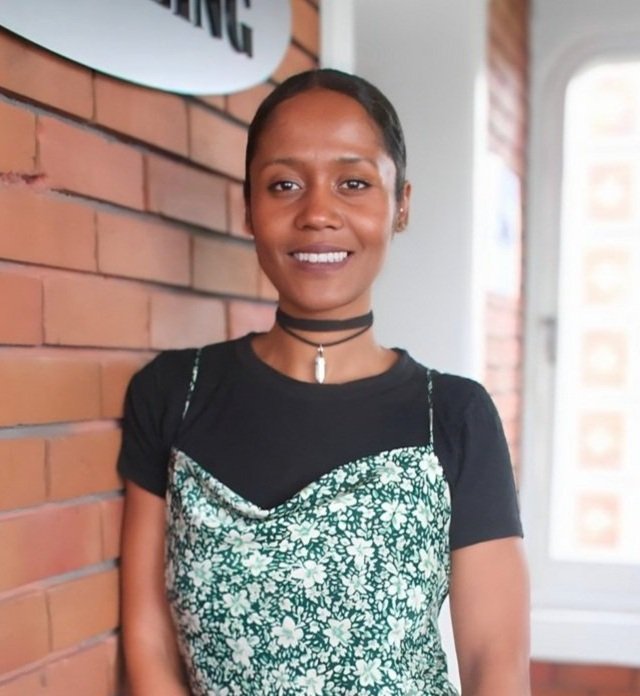Connecting with our Authentic Selves: The beginnings of a journey (PART 1)
Living in a society where so much is happening around us, it becomes all too easy to neglect what’s happening in our own bodies. Oftentimes, we are too busy to even hear what our bodies might be trying to tell us - there are bills to pay, social gatherings to attend, appointments to schedule, obligations to tend to, employment to maintain, and so much more. The outside noise, and the noise of all that needs to be done, inevitably drowns out the (possibly long ignored) whispers of our own needs. This is done at least in part, by our autonomic nervous system. The autonomic nervous system is the part of the central nervous system (brain, spinal cord, and all the nerves in our body) that regulates involuntary body functions. This means that this “drowning out” and disconnect from our authentic selves is happening unconsciously, involuntarily, and out of necessity so that we can keep doing the things we need to do to survive perhaps because we cannot afford (mentally, emotionally, financially, etc.) to meet our needs given our past and/or current circumstances.
Another common and related obstacle between us and our authentic selves tends to be the long standing fear of negative emotions (i.e. anger, sadness, shame, etc.) that permeates our culture and society, demonizing struggles that so many of us are facing alone. Emotions are an integral part of who we are as humans and how we make sense of the world. It is through “feeling” that we truly “experience” the world. Therefore, the so-called negative emotions are unavoidable as we are faced with all kinds of experiences throughout our lifetime. Now, I could probably write a book on the reasons why negative emotions and mental health struggles are demonized, but there are much better ones out there than what I could write, which talk about this phenomenon and so much more (try The Myth of Normal by Dr. Gabor Maté if you’re interested!).
What I will say though, is that one reason is obvious. And that is the fact that negative emotions FEEL… well, terrible. It is hard to sit with and make space for something that is going to evoke discomfort especially when we have so much to do that demands our best. It is also hard to sit with and make space for something that connects us to experiences that were too overwhelming and that we do not know how to heal from. And that is why we must start small. Like we do when we first start working out, for example. We must build up our capacity from the smaller weights, to the larger ones, so as not to strain our muscles.
Similarly, we must start practicing turning inwards with the “smaller” moments. I invite you to reflect by thinking about the following questions:
What do you notice in yourself when you walk into a room?
Does your chest tighten? Does it open up? Does it sink? Or perhaps it flutters?
How does it feel when you have a meaningful conversation with someone you love? Do you feel warm?
Where do you feel that warmth?
What do you notice shift within you as you drink that cold glass of water you’ve been putting off for the last hour (or maybe, 8!)?
What would it be like, to start to become more present in any given moment?
Side note: It is absolutely okay if you can’t notice anything at all! Or perhaps you are noticing too many things at once and are having a hard time teasing them apart. That is okay, too. The quiet and the chaos are part of your experience. You’ll understand it in your own time. For now, can you become curious about it? Can you allow yourself to be with it without needing to make sense of it? It’s okay if you can’t just yet. This is a work in progress - a skill that can be developed.
My goal in writing this blog is to peak your curiosity about your authentic self and what that means to you because it really does start with a hint of curiosity. Whether you struggle with feeling your emotions at all or feel them too much (or both!), I wish to instill some hope that living a life that is truer to ourselves AND emotionally regulated (whatever that looks like for you) IS possible.
If you’re curious, stay tuned for PART 2 friends, where I will share with you, some of the neurobiology behind why that is absolutely and entirely possible!
Written by: Arsh Reddick MSW, RSW
Arsh is a registered social worker, with a Masters of Social Work degree from Wilfrid Laurier University, and holds a Bachelor of Science degree in Psychology: Brain and Cognition with Honors from the University of Guelph. Over the last 9 years Arsh has worked with children, youth, and adults providing psychotherapy to those struggling with addictions, trauma, anxiety, depression, acute and chronic emotional dysregulation, self esteem issues, parenting struggles, and more.



